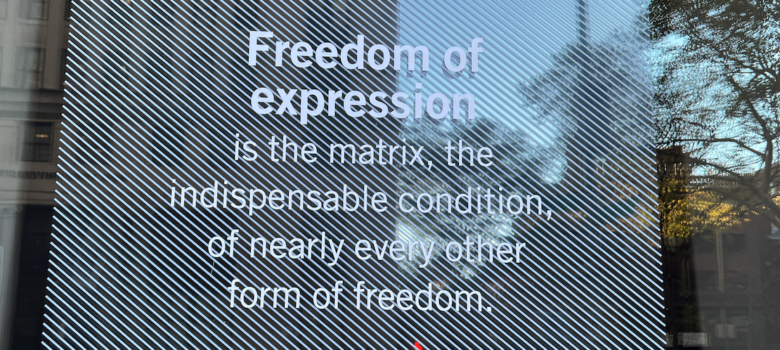The Standing Committee on Canadian Heritage opened its clause-by-clause review of Bill C-18 on Friday with some extensive questions about the scope of coverage of the bill and the opportunity to vote on several amendments. The meeting finally provided the chance to ask department officials for their views on key questions, including whether the government believes that services such as Reddit and Twitter are caught by the law (the answer was yes they are digital news intermediaries, but may not be sufficiently dominant to be required to negotiate mandate payments). The most important moment in the hearing came toward the end, when Conservative MP Rachael Thomas moved an amendment to exclude links from the scope of the definition of news content. That approach would still ensure that news publishers are covered for uses of their work such as republication (which is precisely what most would envision) but safeguard the foundation of the free flow of information on the Internet.
As I’ve argued elsewhere, the government’s current approach ascribes value to links where there isn’t any, regulates which platforms must pay in order to permit expression from their users, and dictates which sources are entitled to compensation. The committee did not have time to vote on the amendment, but Liberal MP Chris Bittle offered up the government’s perspective, which is that it will vote against the proposal, confirming that it intends to include links within the scope of the legislation. That confirmation is not surprising, but it is notable, since advocates of the bill have insisted – despite a plain reading of the bill – that it does not require payments for links. That argument seemingly rests on the claim that payments will involve compensation for all links, rather than individual ones, which is a distinction without a real difference.
While the government has had months to prepare a response to the link issue, Bittle’s response was even worse than might have been expected as the government is taking the position that any sharing of news requires negotiated payment and that if linking is not included, the entire bill will be “gutted.”
I understand where Mrs. Thomas and the Conservatives are coming from, but we are concerned about the enormous loopholes this is going to create. C-18 requires the parties to bargain over all the ways that content is made available and restricting that only hurts news organizations. Eliminating hyperlinks risks cutting out an important way in which news is shared. We’ve seen in Spain what happened…eliminating hyperlinks in their legislation provided tech companies with a giant loophole to drive a truck through and just show news as hyperlinks and avoid payment…This amendment risks gutting the entire bill.
First, Bittle is factually wrong as Spain did not create a specific exemption for links in its legislation. Quite the opposite: Spain required payments for links and Google responded by removing the Google News service from the country. Google restarted the service earlier this year when the law was changed consistent with European standards that allow publishers to waive link compensation.
Second, the government’s position that any news sharing requires negotiation for compensation and that excluding links would be “loophole” represents a dangerous attack on freedom of expression. This blog post shares a link to a news article that Bittle should have read before reading his inaccurate statement of the law in Spain. This form of news sharing is an important part of public discourse and is basic expression. Indeed, linking to source material is often essential to counter misinformation and mandated payments creates unnecessary barriers to the ability for Canadians to inform and become informed.
In fact, the claim that excluding links would represent a “loophole” is little different than saying that freedom of expression is somehow a loophole. The default for freedom of expression is, naturally enough, freedom to express oneself without government regulation. While that doesn’t mean anything goes – defamation, hate speech, etc. still apply – expression rights without regulation is not a loophole. It is rightly the default in a democratic society where speech regulation is the exception, not the rule. The danger with Bill C-18 is that it flips this principle on its head, adopting the position that this form of speech must be included within a regulatory framework and that to do otherwise would “gut” the legislation via a “loophole”. It is not and shame on those in the government and the news lobbying sector that would so cavalierly undermine the most fundamental of freedoms in pursuit of political expediency or a government-enforced payout.








Now, credit where credit is due. Chris Bittle’s response gets most of the facts wrong and shows his party’s utter contempt for freedom of expression, if not individual rights and freedoms in general, but he managed to do so without publicly and maliciously accusing everyone who disagreed with him of antisemitism.
That should read “racism.” My mistake.
So – a question that – for now – might be mostly theoretical. What if a “system” like Mastodon, or another strongly federated solution, ends up being how many links are shared? When Google and Meta could just stop any news references, and nobody would notice or care?
What is supposed to happen when the main sources no longer have the big bucks?
My guess is they will be lobbying for a mandatory news support fee that would be added to your internet and cell phone bills.